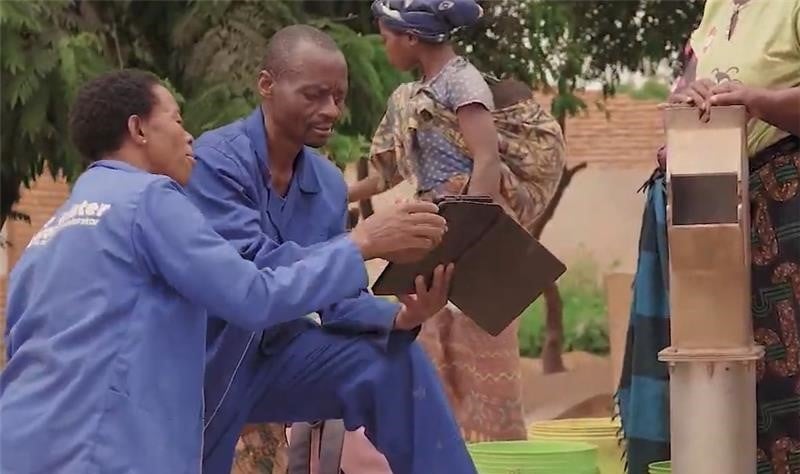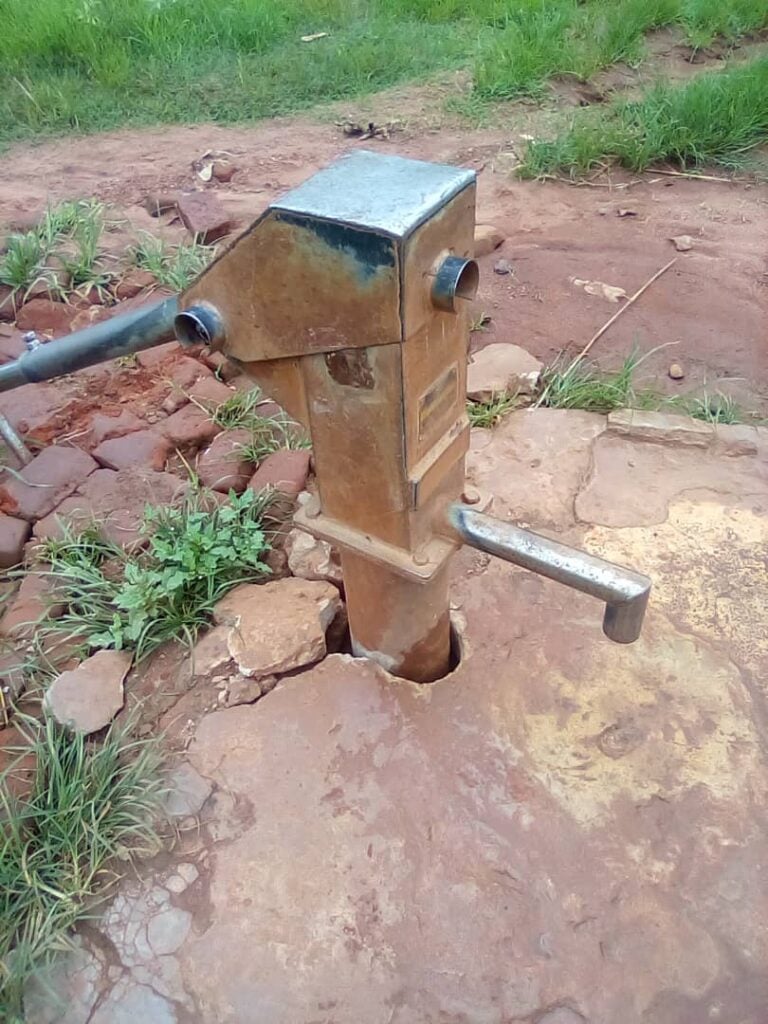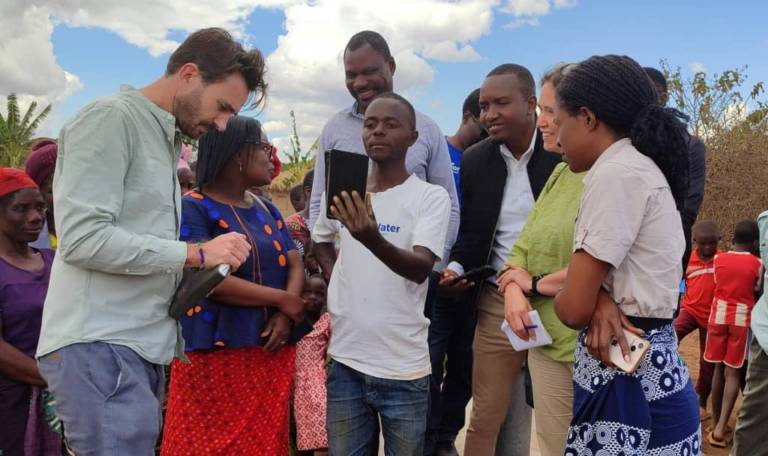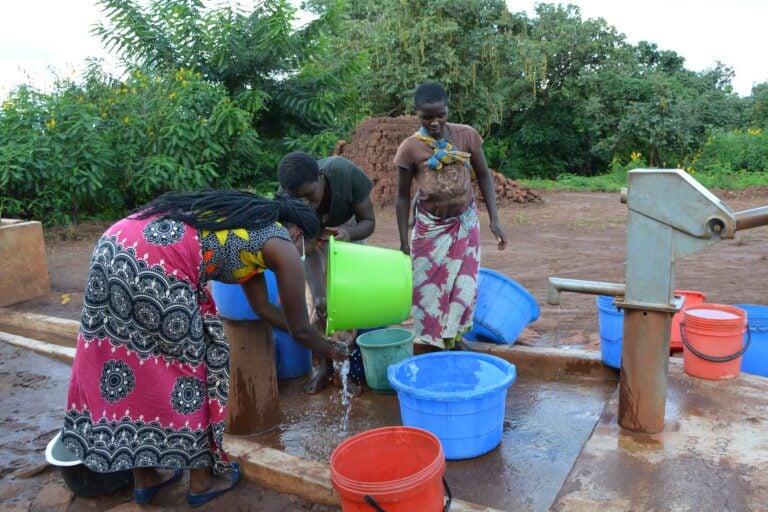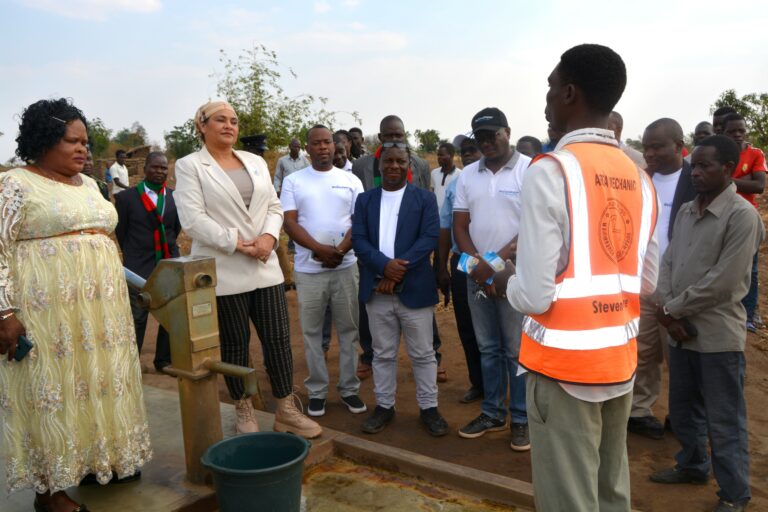Insight Piece: The crucial need for evaluation and regulation to support professionalised rural water services
Written By: James Kitt
Introduction
Existing management models for rural water supply have placed the burden of responsibility on individual communities and part-time Area Mechanics to repair and maintain handpumps. Community based management (CBM) has not worked. According to a 2023 Government of Malawi report, 59.5% of Malawi’s circa 60,000 handpumps are non-functional at any given time. Why? Volunteer community committees lack the trust and capacity to effectively maintain waterpoints, Area Mechanics operate in isolation – unsupported and unaccountable they fail to meet minimum service standards, and a lack of robust data management doesn’t enable district governments to provide effective oversight and regulation.
How do you regulate district water management?
Whilst a national government is responsible for developing policies and standards and co-ordinating national approaches, day-to-day regulation of water supply occurs at a district level. This requires a District Water Development Office to have a. an effective framework for evaluating service provider performance, b. an accessible and transparent platform to collect and visualise performance metrics and c. the capacity to enforce regulatory standards and a financial mechanism for supporting service provider growth.
For the last 12 months, Beyond Water has been part of the UpTime Catalyst Facility, a results-based financing mechanism that evaluates service provider performance based on user revenue, waterpoint functionality and direct/indirect costs. Whilst top-line key performance indicators (KPIs) relating to service provider performance have been monitored through the UpTime pilot these are not designed to be exhaustive or to provide a complete picture of the efficacy of the service provision. This has led Beyond Water to develop a comprehensive framework that clearly communicates our performance from the bottom-up. Our user contracts define guaranteed service standards to our customers, Quarterly Performance Assessments undertaken by the DWDO to audit our work sets us on a path to full district licensing.
Not only is this instrumental to build trust in service provider approaches but it establishes universally accepted performance indicators that will provide the national government with a complete analysis of different approaches when deciding on how to scale to a national level but it is also essential for the viability of service providers themselves who are delivering capital intensive activities (waterpoint repairs and rehabilitations, heavily subsidised service arrangements) to end users. Service providers are vital in providing accurate and timely data to regulatory bodies and promotes the financial support of service providers to ensure their ability to scale to financial viability. Without effective service providers there will be no data to evaluate and evidence.
What should a framework for evaluation include?
Beyond Water has developed a system for robust data management, utilising government mandated mWater and our proprietary Management Information System (MIS), centrally managing relationships with customers (WPCs) and contracted mechanics.
Beyond Water splits KPIs in to three broad groups: Operational, Financial and Business Strategy:
Operational – KPIs relating to the day-to-day management of the business, ensuring we maintain our commitments to customers, clients and government and constantly improve business efficiency.
Financial – KPIs relating to customer affordability, payment compliance and startup/ongoing costs are used to track financial viability and cost effectiveness.
Business Strategy – A hybrid of Operational and Financial KPIs used to assess the scalability of an approach to ensure it can be adopted on a national scale.
We have real-time data on pump functionality, repair costs, supply chain management of spare parts, mechanic services and payments. This underpins our approach to professionalisation.
Accurate collection and monitoring of these KPIs supports a. effective governance by local government, b. additional investment into the rural water sector and c. continued improvement of business operations and service delivery to customers.
How should a framework for evaluation be developed and delivered?
The primary source of data for the evaluation framework will be the service providers undertaking R&M operations. From experience, Beyond Water has found paper-based reporting conducted without centralised management of the Mechanic to be less effective and has developed comprehensive app-based data collection via the mWater platform. Mechanics receive payment incentives directly linked to the accuracy and timeliness of their data submissions to encourage 100% compliance. mWater is the adopted platform of the national government and therefore would be the preferred platform to pass data upstream from service provider to local government to national government.
The capacity of the district government to monitor and manage the performance of service providers operating in their jurisdiction must be improved in tandem with service provider development. This should result in the DWDO taking on responsibility for area-wide licensing to service providers, granting exclusive rights to provide R&M services based on the performance criteria set out in the framework for evaluation. The DWDO would be able to monitor KPIs in real time through a view-only dashboard on mWater, this would be followed up with periodic spot checks of the service provider. This robust framework lays the foundation for devolved funding through district managed results-based financing, granting further power to the DWDO to manage the performance of the chosen service provider whilst providing a vital income stream to ensure financial viability of service providers.
Summary
What does a professionalised service look like?
A professionalised management arrangement provides guaranteed services to users and regulators. These guarantees are enforced through user contracts and district licenses that facilitate revenue streams for the service provider. In order for a service provider to ensure long term viability, district governments need to have an comprehensive framework for evaluation and the capacity to regulate using the framework.
What needs to be thought about when developing a framework for evaluation?
In order to implement a framework that will be widely adopted and can be scaled nationally, there are certain essential criteria that need to be in place:
- Clear roles for stakeholders; service providers, INGOs focused on capacity building, district government, national government.
- An established baseline conducted by an independent authority that provides a benchmark to monitor the progress of different approaches.
- A robust platform for collecting and monitoring data points in relation to each KPI.
What needs to be evaluated and how?
Rural water services are complex and require in-depth monitoring in order to provide an accurate assessment of how effective, financially viable and scalable approaches are. Broadly speaking data can be broken down into three broad areas; operational (is the service meeting the needs of the user), financial (does the approach have a path to financial viability) and evaluation and strategy (can the approach be scaled).
Beyond Water is excited to be working with national partners who share the same belief in our approach. We are currently focused on implementing our framework for evaluation in Kasungu district and have the ambition to scale to additional districts with the support of partners in 2025 and beyond.
CASE FOR SUPPORT
Beyond Water has worked hand-in-hand with local government stakeholders in Kasungu district to advance the vision set out in this blog. Partners, such as WaterAid and the French Embassy, have actively supported the initiative as we seek to make a combined case for support.
In order to establish a successful regulatory environment there are a series of interdependent focus areas that require support.
Beyond Water is in a position to work with and advise any partners interested in supporting one or more of the above pillars to change Malawi’s rural water sector, for good
Learn more about Beyond Water, here.
Support Pump Aid in increasing safe water access to rural communities in Malawi.
